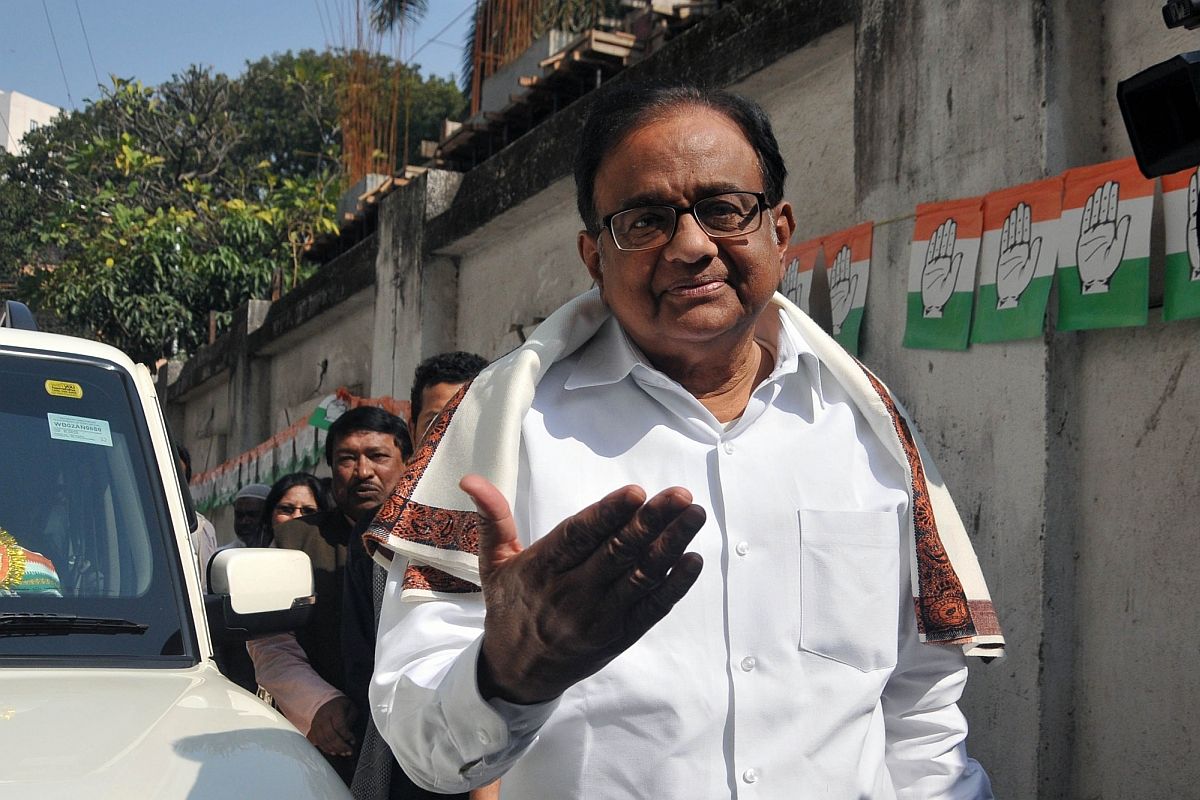Congress leader P Chidambaram on Friday took a swipe at Union Finance Minister Nirmala Sitharaman over her “Act of God” remark for the Coronavirus pandemic, at the GST Council meeting, which has badly hit the country’s economy.
Briefing reporters after the 41st meeting of the GST Council on Thursday, Finance Minister Nirmala Sitharaman said the economy is facing an extraordinary “Act of God” situation, which may result in economic contraction.
Advertisement
In response to the comment, Chidambaram sarcastically hailed the Finance Minister as “Messenger of God” and asked her to describe the mismanagement of the economy between 2017 and 2020 before the pandemic struck India.
“If the pandemic is an “Act of God”, how do we describe the mismanagement of the economy during 2017/18, 2018/19 and 2019/20 BEFORE the pandemic struck India? Will the FM as the Messenger of God please answer?” Chidambaram asked in a tweet.
In another tweet, he said the two options given by the Narendra Modi government to the States to bridge the GST compensation gap is a “gross violation” of the law and an “abdication of the responsibility” of the Central government.
“The central government is absolving itself of any financial responsibility. This is a gross betrayal as well as a direct violation of the law,” the former finance minister said.
Chidambaram added that “the latest assault on the States is part of an elaborate design of the Modi government to financially cripple the States and reduce them to beg for money from the Centre.”
He further urged the states to reject both the options and demand in one voice that the Centre must find the resources and provide the money to the states.
The Centre on Thursday placed before the GST Council two options for borrowing by states to meet the shortfall in GST revenues, pegged at Rs 2.35 lakh crore in the current fiscal.
As per the Centre’s calculation, the compensation requirement by the states in the current fiscal would be Rs 3 lakh crore, of which Rs 65,000 crore is expected to be met from the cess levied in the GST regime. Hence, the total shortfall is estimated at Rs 2.35 lakh crore.
Revenue Secretary Ajay Bhushan Pandey said of this, Rs 97,000 crore is on account of GST shortfall, while the rest is due to the impact of COVID-19 on the economy.
Pandey said a special window can be provided to the states, in consultation with the RBI, at a reasonable interest rate for borrowing of Rs 97,000 crore. The amount can be repaid after five years (of GST implementation) ending 2022 from cess collection.
The second option before the states is to borrow the entire Rs 2.35 lakh crore shortfall under the special window.
“States have been given seven days’ time to think over the proposal,” Pandey said.
After the five-hour-long meeting of the GST Council, Sitharaman had hit out at the opposition for “unnecessarily trying to politicise” the GST compensation issue when their previous government was to be blamed for “building an environment of mistrust” between the Centre and states.
Reacting to charges that several states, particularly those ruled by the opposition, were blaming the Centre on going back on its commitment to pay GST compensation to states, she contended that it was the former government, which did not keep its promise on Central Sales Tax (CST) compensation issue that created an atmosphere of mistrust.
This mistrust, she said, initially even affected GST implementation.
“But I am grateful to states that there was no attempt to politicise the compensation issue at the Council’s meeting today. There were just worries about the current situation and an anxiety to find a solution to the compensation problem,” Sitharaman said.
Some states have blamed the Centre for shying away from its constitutional obligation to pay GST compensation to states.
















